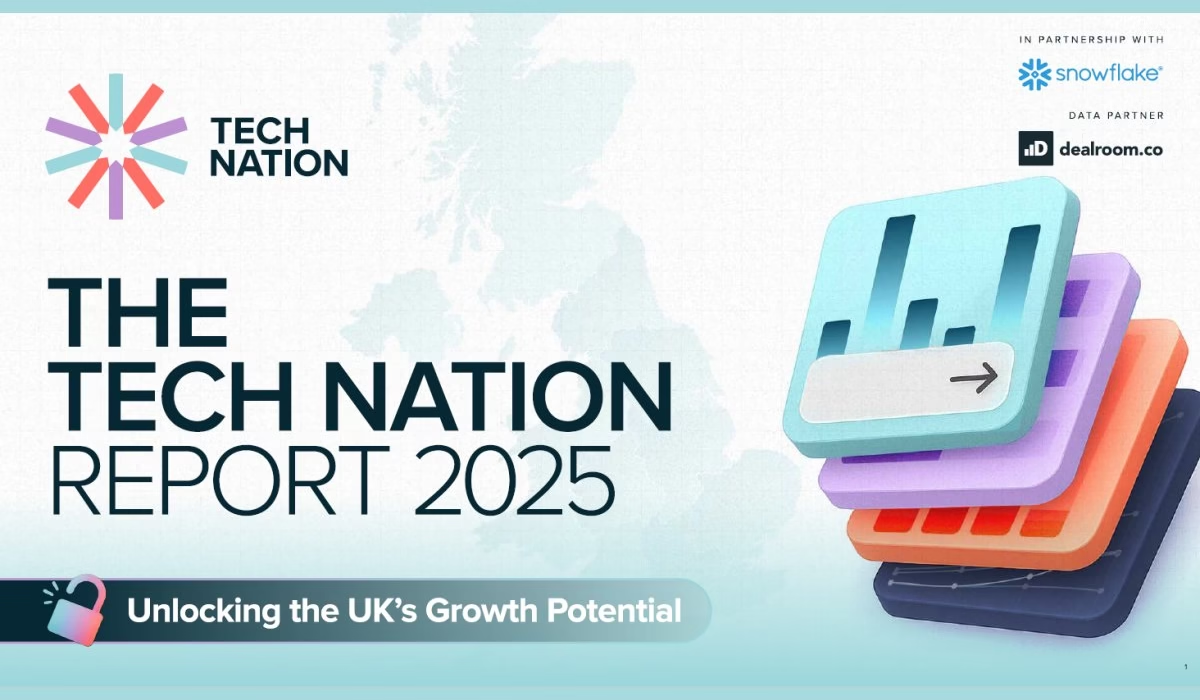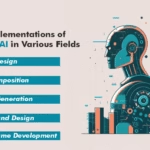“`html
UK Technology Trends 2025: Navigating the Future of Innovation
Estimated reading time: 10 minutes
Key Takeaways
- The UK tech sector is a powerhouse, valued at $1.2 trillion with a 12.5% CAGR, outpacing European competitors.
- AI is a dominant force, with significant investment and widespread adoption across industries.
- Cybersecurity remains a critical concern, driving demand for specialized skills and solutions.
- Emerging technologies like quantum computing and green tech are gaining traction and investment.
- Challenges persist, particularly in access to capital and talent, leading some founders to consider relocating.
- Policy reforms are crucial to sustain and enhance the UK’s tech ecosystem.
Table of contents
- UK Technology Trends 2025: Navigating the Future of Innovation
- Key Takeaways
- The Big Picture: UK Tech Industry Outlook 2025
- Dominant Forces: AI Trends UK 2025
- Cybersecurity in the Spotlight
- Emerging Technologies Shaping the Future
- Challenges and Opportunities
- Policy and Ecosystem Growth
- Frequently Asked Questions
The Big Picture: UK Tech Industry Outlook 2025
The UK technology sector continues its impressive trajectory, solidifying its position as Europe’s most valuable tech ecosystem. Valued at an astounding $1.2 trillion, it boasts a compound annual growth rate (CAGR) of 12.5%, significantly outperforming its major European counterparts. This robust growth is a testament to the nation’s innovative spirit and its ability to foster a dynamic entrepreneurial landscape. The economic climate, while subject to global fluctuations, has largely seen a strong inflow of venture capital into UK startups. In the first half of 2025 alone, over $7 billion was raised, with the first quarter marking the strongest start to a year in three years. Notably, growth-stage funding constitutes a significant 81% of this investment, indicating a healthy pipeline of scaling companies, although early-stage deals have shown slower progress.

The UK’s success in nurturing ‘unicorns’—privately held startups valued at over $1 billion—is remarkable, with 163 such companies created. Even more encouraging is that 90% of these unicorns choose to remain and scale within the UK, demonstrating a strong commitment to the domestic ecosystem. However, the sector is not without its hurdles. A significant challenge, cited by 74% of founders, is the access to capital as a barrier to scaling. Furthermore, one in three founders struggle with talent availability, a persistent issue in a rapidly evolving industry. This has led to a concerning statistic: 43% of UK founders are considering relocating their headquarters abroad, often to the United States, seeking better access to capital and partnership opportunities. To counter this, proactive policy reforms are essential, including unlocking institutional capital through pension fund reform and modernizing immigration policies to attract and retain global tech talent. Amidst these broader trends, Small and Medium-sized Enterprises (SMEs) with revenues between £2 million and £50 million remain the backbone of UK tech innovation. These agile companies are thriving across diverse sectors such as AI, fintech, and green technology, demonstrating remarkable resilience and adaptability even in the face of geopolitical shifts.
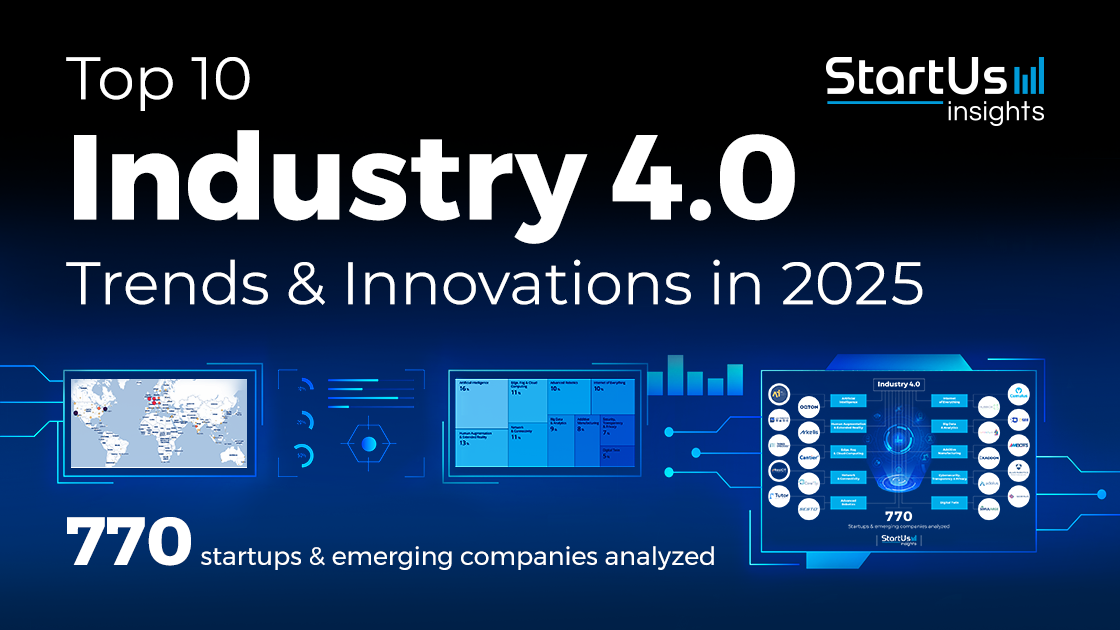
Dominant Forces: AI Trends UK 2025
Artificial Intelligence (AI) continues to be the most influential force shaping the UK’s technology landscape in 2025. The sector is experiencing a boom in AI startups, with median growth-stage funding rounds reaching an impressive $40 million, a clear indicator of strong enterprise confidence in AI’s potential. Generative AI, in particular, is revolutionizing industries from healthcare and finance to logistics, establishing the UK as a burgeoning hub for applied AI and data platforms. The synergy between AI and fintech is particularly noteworthy, driving significant revenue growth and attracting substantial capital investment. This integration is not confined to enterprise-level applications; generative AI tools are rapidly transitioning from experimental phases to becoming integral parts of daily workplace routines, fundamentally transforming digital content creation and consumption.

The demand for specialized AI and machine learning skills is skyrocketing. Companies are actively seeking data engineers, data scientists, and full-stack developers to support their AI integration efforts. Beyond AI, deep tech ventures, including quantum computing and bioengineering, are attracting considerable late-stage investment, with rounds reaching up to $240 million. This significant funding underscores a growing belief in AI’s capacity to solve complex problems across scientific and technological frontiers. As AI becomes more pervasive, its application spans numerous areas, from enhancing cybersecurity defenses and revolutionizing finance with fraud detection to optimizing marketing strategies and powering the next generation of smartphones. The transformative power of AI is also evident in sectors like transportation, with advancements in autonomous vehicles, and in the development of smart homes and cities, where AI-driven efficiency and connectivity are paramount. The ethical considerations and regulatory frameworks surrounding AI are also becoming increasingly important, with a growing focus on fairness, ethics, bias, and accountability in AI development and deployment.

The integration of AI is also extending into consumer electronics and digital platforms. We are seeing AI-powered features becoming standard in smartphones, with foldable technology and enhanced virtual assistants pushing the boundaries of user experience. Wearables are also leveraging AI to provide personalized health insights and seamless interaction. In the realm of entertainment, AI is enhancing gaming experiences and content creation, from AI-generated music to advanced CGI in film and television. The way we search for information is also being reshaped by AI, with more intuitive and context-aware search technologies emerging. The underlying infrastructure supporting these advancements is also evolving, with edge computing and hybrid cloud solutions becoming more sophisticated. Furthermore, the development of advanced AI models, such as potentially Llama 4, promises even more multimodal and powerful capabilities. The ethical implications of AI, including its potential dangers and the need for responsible development, are subjects of ongoing discussion and research, influencing regulatory approaches and industry best practices.
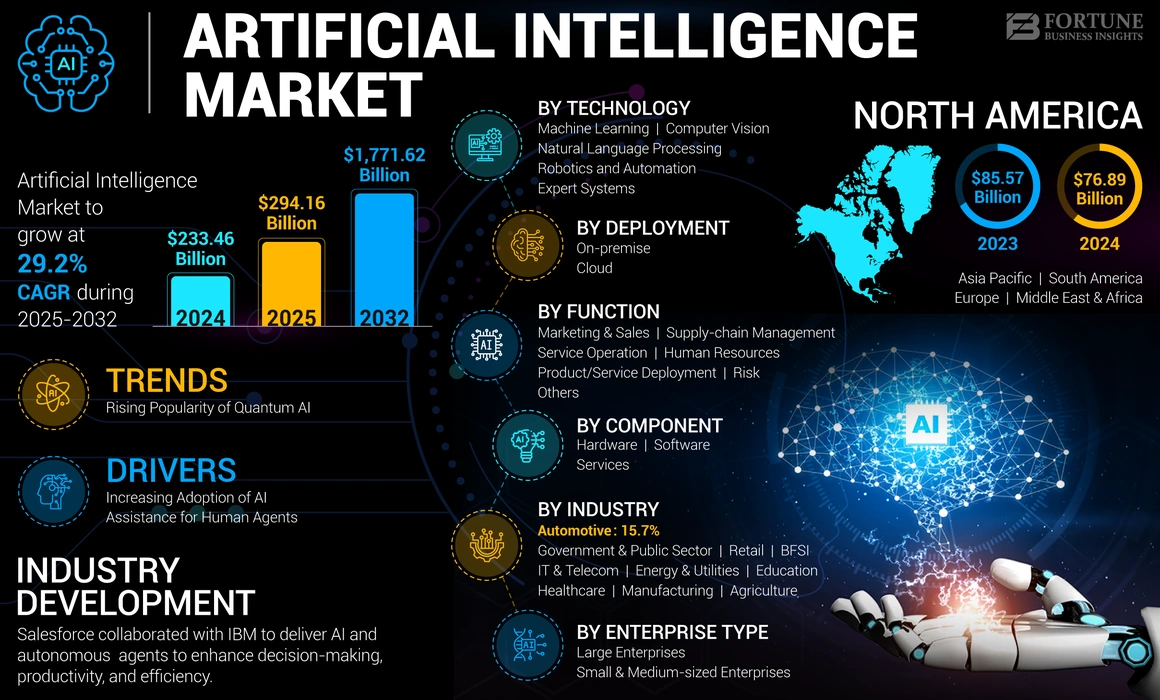
Cybersecurity in the Spotlight
In the rapidly evolving digital landscape of 2025, cybersecurity remains a paramount concern for businesses and individuals alike. The increasing sophistication of cyber threats necessitates robust defense mechanisms and a constant evolution of protective strategies. The UK tech sector is at the forefront of developing and implementing advanced cybersecurity solutions, with a particular emphasis on AI-driven threat detection and prevention. Companies are investing heavily in AI-powered cyber defense systems that can identify and neutralize threats in real-time, offering an “unbeatable” level of protection.

The rise of cloud computing has also brought its own set of security challenges. Ensuring the security of cloud environments is critical, and innovative solutions are emerging to provide next-generation cloud security. This includes advanced encryption, identity and access management, and continuous monitoring to safeguard sensitive data. The interconnected nature of modern systems means that a vulnerability in one area can have cascading effects, making a holistic approach to cybersecurity indispensable. The demand for cybersecurity professionals with expertise in areas like ethical hacking, penetration testing, and data privacy is at an all-time high, reflecting the critical need for skilled individuals to defend against an ever-growing array of cyber threats. As the digital footprint of businesses and individuals expands, so too does the attack surface, making proactive and intelligent cybersecurity measures not just a recommendation, but an absolute necessity for survival and success in the digital age. The threat landscape is constantly shifting, with new attack vectors and malware variants emerging regularly, making continuous learning and adaptation key components of any effective cybersecurity strategy. The financial sector, in particular, is a prime target for cybercriminals, making AI-powered fraud detection and transaction monitoring essential for maintaining trust and security.

Emerging Technologies Shaping the Future
Beyond AI and cybersecurity, several other emerging technologies are poised to significantly shape the UK’s tech future. Quantum computing, once a theoretical concept, is now attracting substantial investment, with early-stage ventures exploring its potential for complex problem-solving. Quantum breakthroughs are not just theoretical curiosities; they hold the promise of revolutionizing fields from drug discovery to materials science and cryptography. Similarly, advancements in bioengineering are leveraging AI and other technologies to create novel solutions in healthcare, agriculture, and environmental science. The drive towards sustainability is also fueling innovation in green technology and sustainable computing, focusing on reducing the environmental impact of technology and developing eco-friendly solutions. This includes everything from energy-efficient data centers to AI-powered tools for environmental monitoring and conservation.
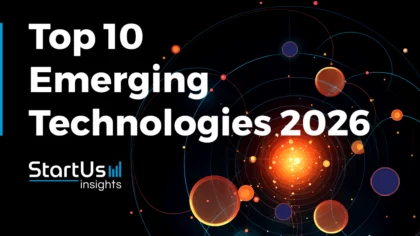
The digital infrastructure itself is also undergoing a transformation, with the continued rollout and development of 5G connectivity enabling faster speeds and lower latency, paving the way for more immersive experiences and advanced applications like smart cities and enhanced remote operations. Web3, the concept of a decentralized internet, is also gaining momentum, with a focus on blockchain technology, NFTs, and decentralized applications aiming to shift power from centralized platforms to individual users. The development of new communication protocols and decentralized identity solutions are key aspects of this ongoing revolution, promising a more equitable and user-centric internet. In the realm of hardware, advancements in foldable phone technology and the development of new materials like liquid glass signal a future of more versatile and durable personal devices. The integration of AI into everyday devices, from smartphones and wearables to home appliances and vehicles, is becoming increasingly sophisticated, offering personalized experiences and greater convenience. The gaming industry is also seeing significant innovation, with advancements in VR and cloud gaming offering more immersive and accessible entertainment options. The development of sophisticated AI-powered game development tools and engines is further accelerating the creation of more engaging and realistic gaming experiences. Even seemingly niche areas like zines are experiencing a resurgence, highlighting a broader trend towards diverse forms of content creation and community building in the digital age.

Challenges and Opportunities
Despite the UK’s strong position, significant challenges remain. As mentioned, access to capital is a persistent hurdle, particularly for early-stage startups. Many founders feel that the UK ecosystem, while growing, still lags behind global leaders in providing the necessary funding to scale rapidly. Talent availability is another critical bottleneck. The demand for highly skilled tech professionals, especially in areas like AI, data science, and cybersecurity, often outstrips supply. This skills gap not only hampers growth but also contributes to the alarming statistic that a considerable percentage of founders are considering relocating to regions with more robust support structures and talent pools.

However, these challenges also present significant opportunities. The need for accessible capital is driving innovation in funding models, including the growth of venture debt, corporate venture capital, and alternative funding platforms. Addressing the talent gap requires a multi-pronged approach, involving investment in education and training programs, encouraging STEM participation, and implementing more flexible immigration policies to attract international talent. The UK government’s commitment to investing in supercomputing facilities, for example, signals an understanding of the foundational infrastructure needed for future technological advancements. The resilience and adaptability of UK SMEs are also a major opportunity. These companies are agile, innovative, and often at the forefront of adopting new technologies, making them crucial drivers of economic growth and technological progress. The development of specialized AI tools for various industries, from healthcare breakthroughs to fraud detection in finance and optimized marketing campaigns, showcases the immense potential for AI to drive economic value. Furthermore, the increasing focus on ethical AI and regulatory frameworks presents an opportunity for the UK to become a global leader in responsible AI development.
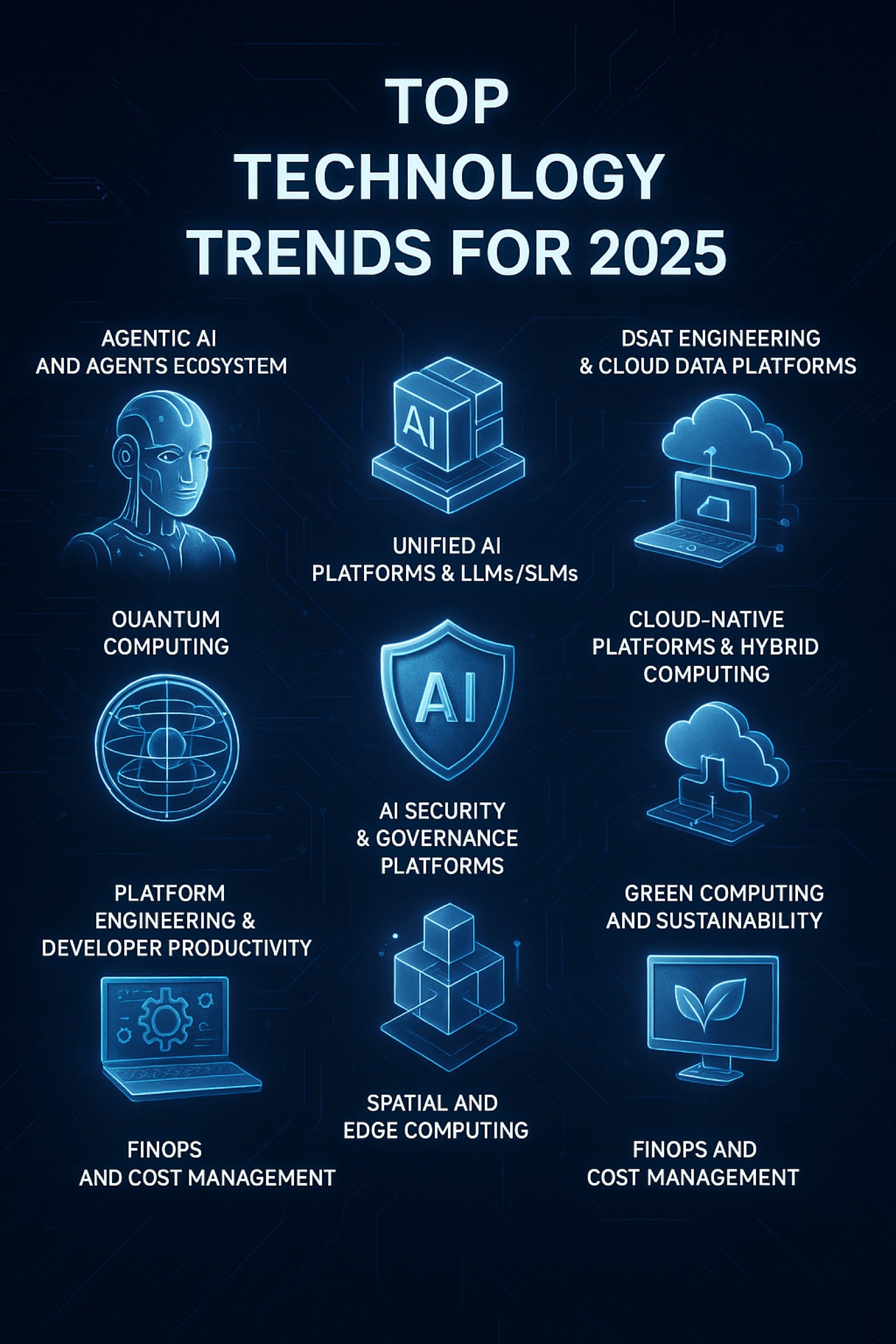
Policy and Ecosystem Growth
The UK government has a pivotal role to play in nurturing the tech ecosystem. Policy reforms are not merely beneficial; they are essential for sustained growth. Unlocking institutional capital, particularly from pension funds, could provide a much-needed injection of funding for startups and scale-ups. Modernizing immigration policies to attract and retain top global talent is equally crucial. A clear and supportive regulatory environment for emerging technologies, such as AI, is also vital. This includes establishing clear guidelines for AI development and deployment, ensuring fairness, transparency, and accountability, and fostering trust among consumers and businesses. The UK’s ambition to be a science and technology superpower requires a coordinated effort between government, industry, and academia. Initiatives focused on research and development, digital skills training, and international collaboration are all key components of this strategy. The ongoing discussions around AI regulation, for instance, highlight the need for a balanced approach that encourages innovation while mitigating risks. The government’s role in fostering competition and ensuring fair market practices, such as forcing changes in search engine results to promote competition, is also important for a healthy tech landscape.

The success of initiatives like the UK government’s supercomputer funding underscores the importance of strategic investment in foundational technologies. Collaboration between tech giants and startups, such as Meta’s investments in AI and its engagement with researchers like Alexandr Wang, can accelerate innovation. The ongoing efforts to address critical AI challenges, such as bias and ethical considerations, are essential for building a trustworthy AI future. The UK’s role in global technological advancements is also evident in its engagement with international standards and regulations. The discourse around AI fairness and ethics, including the need for bias accountability, is a critical part of shaping a responsible AI future. The continuous evolution of mobile technology, with rumors about new features for iOS and Android, and the development of new smartphone form factors, further illustrates the dynamic nature of the consumer tech market. The ongoing legal battles concerning data access and privacy, such as those involving WhatsApp and the UK government, highlight the complex interplay between technology, privacy, and regulation. The gaming industry, with anticipated releases and console updates like the PS6, also demonstrates the rapid pace of innovation and the significant market forces at play.

Frequently Asked Questions
-
Q1: What is the current valuation of the UK tech sector?
A1: The UK tech sector is currently valued at $1.2 trillion.
-
Q2: What is the main challenge cited by UK tech founders for scaling?
A2: The primary challenge cited is access to capital, with 74% of founders identifying it as a scaling barrier.
-
Q3: Which technologies are considered dominant forces in the UK in 2025?
A3: Artificial Intelligence (AI) is the most dominant force, with generative AI showing significant impact across industries.
-
Q4: What are some key emerging technologies in the UK?
A4: Emerging technologies include quantum computing, bioengineering, green technology, 5G connectivity, and Web3.
-
Q5: What policy reforms are considered crucial for the UK tech sector?
A5: Crucial reforms include unlocking institutional capital, modernizing immigration policies for tech talent, and establishing supportive regulatory frameworks for emerging technologies.
-
Q6: How is AI impacting the UK job market?
A6: There is increased demand for AI and machine learning specialists, data engineers, data scientists, and full-stack developers as companies integrate AI.
-
Q7: What is the significance of SMEs in the UK tech scene?
A7: SMEs (revenues between £2m and £50m) are the core of UK tech innovation, thriving across sectors like AI, fintech, and green technology.
-
Q8: What percentage of UK founders consider relocating abroad?
A8: Approximately 43% of UK founders are considering relocating their headquarters abroad, often to the US, for better capital and partnership access.
“`


